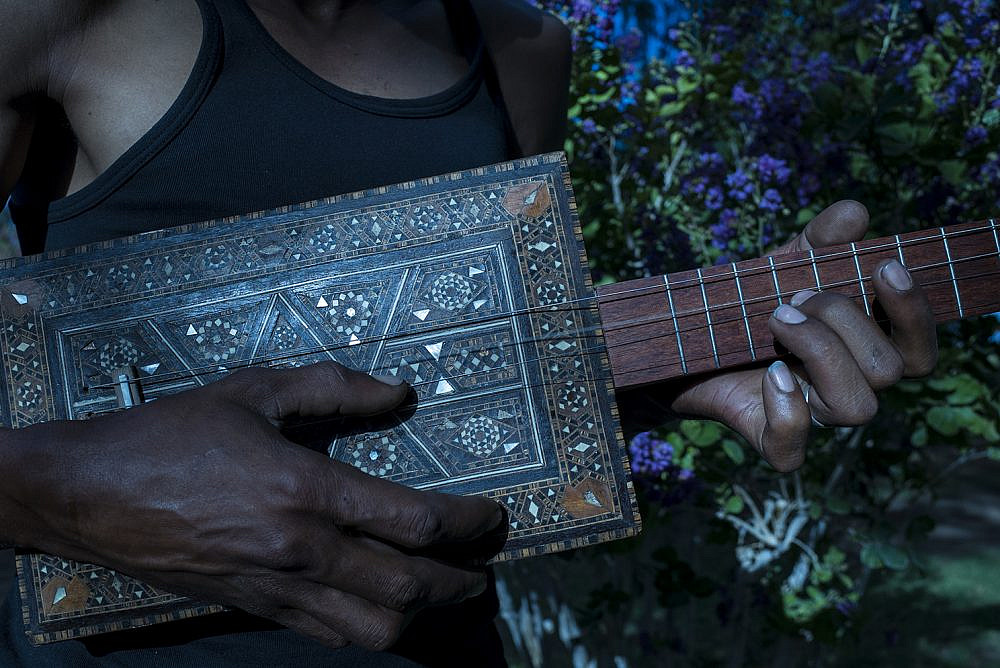Writer and Journalist Henriette Chacar wrote with beautiful depth a story on the way the song I co-produced, “Baby Please Don’t Go” by Azraq (Kam Franklin and Kareem Samara) closes a musical circle. For the story, Kam, Kareem, and myself are all quoted. Enjoy the excerpt below.
A case of the Palestinian blues.
Recording under quarantine, a musical trio gives a classic blues song an Arabic twist, exploring new depths for Black- Palestinian solidarity.
By Henriette Chacar | September 3, 2021
For Kareem Samara, a British-Palestinian multi-instrumentalist, composer, and sound artist, it was naseeb — meant to be. One day in 2020, American-Palestinian filmmaker and music producer Sama’an Ashrawi messaged asking him to play “Baby, Please Don’t Go,” an American blues standard, on the oud. Ashrawi was curious what the blues would sound like in the quarter tones of the Middle Eastern instrument. Minutes later, Samara sent him a recording of the tune.
“It’s a song I’ve always loved,” says Samara. “That song is in my bones.”
Ashrawi and Samara met in 2019 in Palestine, when Samara was on a visit to trace his Palestinian history. His mother’s family had fled Jaffa to Egypt during the Nakba, and he was the first of his relatives to return to Palestine since 1948. At the time, Ashrawi was researching Al Bara’em, considered Palestine’s first original Arabic rock ‘n’ roll band, which his father had started with his siblings in the 1960s.
“Baby, Please Don’t Go” is likely an adaptation of a folk song from the time of slavery in the United States. Most variations of the theme can be traced back to the 1935 version recorded by Delta blues artist Big Joe Williams, whose lyrics relay the fear of a lover leaving “back to New Orleans.” One of the lines in the original version — “I believe that the man done gone, to the county farm, Now with a long chain on” — suggests the singer is a prisoner begging his lover not to move away before he is released.
The song has since been covered by several blues heavyweights and rock bands, including Them, AC/DC, and the Rolling Stones. For Ashrawi, however, the version that has stayed with him is that of famed country blues singer and guitar innovator Samuel John “Lightnin’” Hopkins. “The guitar riff on that song is so memorable, it will always be in my head,” he says.
Samara suggested they turn the oud recording into a track. “He was, like, ‘Do you know anyone who could sing on this?’ And the first person I thought of was my friend Kam Franklin,” Ashrawi recalls. Franklin, a songwriter and the lead singer of Texas soul group The Suffers, accepted the invitation.
“To me, it felt really special to have Kam on the song, and I wanted to make sure there was some element aside from just her voice that made this version Kam’s thing,” says Ashrawi. That’s when he thought of replacing “New Orleans” in the original lyrics with “Third Ward,” the Houston, Texas neighborhood where Franklin is based, and where Lightnin’ Hopkins lived.
Read the full story here.
